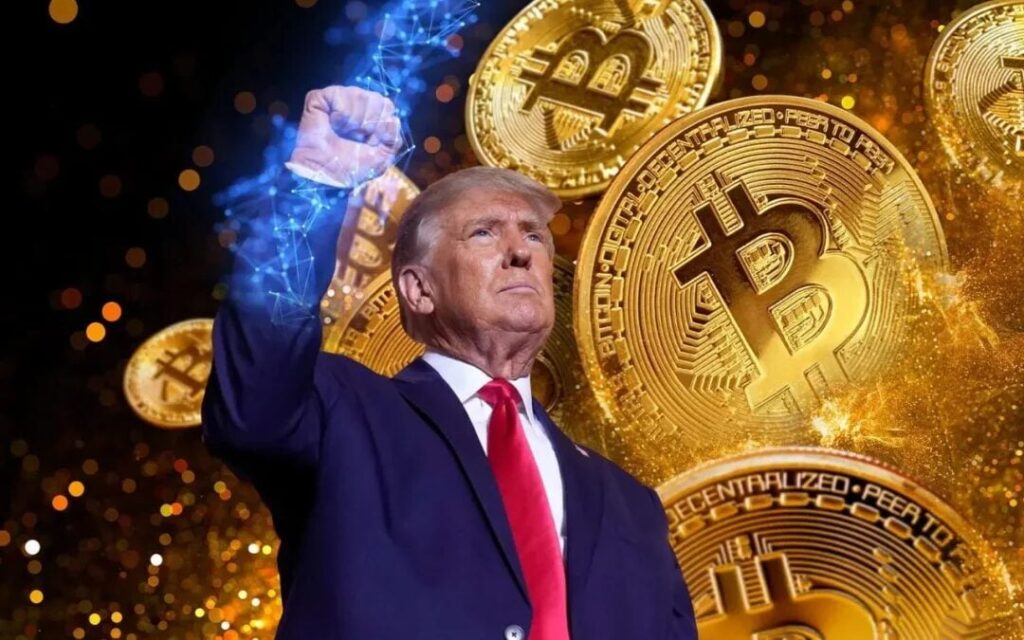Fed and Bitcoin: No interest in hoarding Bitcoin
Federal Reserve Chairman Powell clarified that the Federal Reserve has no intention of hoarding Bitcoin. At a press conference after the latest policy meeting, Powell said the Fed would not allow Bitcoin ownership. He made it clear that this issue is a matter for Congress, not the Federal Reserve, to resolve. This signals firm opposition to the idea of the U.S. government accumulating large amounts of Bitcoin, especially in the context of a potential government-backed Bitcoin reserve.
The idea of a “strategic Bitcoin reserve” has gained widespread attention since President-elect Donald Trump won the election. The concept, promoted by Trump, proposes that the U.S. government could store Bitcoin, potentially using assets seized from criminals. However, specific details on how the reserve will work remain unclear. There is speculation that the reserve could involve the purchase of up to 200,000 Bitcoins per year, eventually reaching a total of 1 million tokens. The funds will be provided through gold held by the U.S. Treasury and bank deposits at the Federal Reserve.
Bitcoin It has been trending upward since Trump’s victory, more than doubling in value this year. The currency has surged above $100,000, driven by optimism about Trump’s crypto-friendly policies. However, despite the growing popularity of Bitcoin and other crypto-assets, they are still largely viewed as speculative investments rather than practical alternatives to traditional currencies. Bitcoin’s volatility and its 15-year history of large price swings make it less effective as a stable store of value or a reliable unit of exchange (two key aspects of a reserve currency).
Source: CoinGecko
Proposals to create a Bitcoin strategic reserve face several legal and regulatory hurdles. For one, it would likely require congressional approval. Additionally, the move would likely require new Treasury debt and raise questions about how the government funds reserves. Barclays analysts pointed out that establishing a reserve of this size may encounter strong resistance from the Federal Reserve, given its current stance on crypto-assets. Powell’s comments emphasized that the central bank is not seeking to change its legal stance on Bitcoin.
Powell and other Fed officials have expressed skepticism about cryptocurrencies. While the Fed has yet to push for its own digital dollar, it has been focused on monitoring how cryptoassets interact with the banking industry. Powell explained that the Fed’s main concern is ensuring that relationships between cryptocurrency companies and banks do not pose a threat to the stability of the banking system. However, the Fed itself does not directly regulate crypto-assets, leaving this responsibility to other agencies.
Trump’s Cryptocurrency and Artificial Intelligence Leadership Plan
As part of his administration’s focus on cryptocurrencies, Trump plans to appoint former PayPal executive David Sacks as White House artificial intelligence and cryptocurrency czar. He also intends to put pro-cryptocurrency consultant Paul Atkins in charge of the Securities and Exchange Commission. This marks a shift towards a more hands-off approach by governments on cryptocurrency issues. However, the details of what this new leadership will mean for the future of cryptocurrency regulation remain to be seen.
To sum up, the Fed has made it clear that it does not want to be involved in the creation of Bitcoin reserves. While the idea of a government-backed reserve has attracted attention, it faces significant legal and regulatory challenges. The Fed’s focus remains on ensuring crypto assets don’t disrupt the banking system, while other agencies, including those within Trump’s incoming administration, are likely to take a leadership role on crypto policy.

